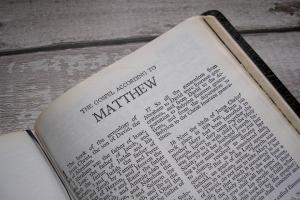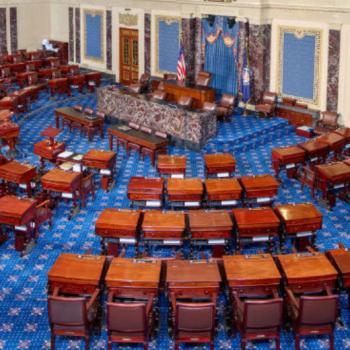Today, the big news was the political stunt pulled by the House GOP visiting our southern border. Ironically there were bomb threats also called into a dozen states that oppose the top GOP presidential candidate.

The political climate in the United States has been a volatile for over a year. Politics has spilled into other public arenas and private businesses too. Recently college presidents stepped down because they failed to speak out against anti-Semitism and their respective schools.
We live in a very opinionated and judgmental society. Our American freedoms have been politicized to justify social injustice.
- Racism
- Poverty
- Anti-Semitism
The rise of anti-Semitism shouldn’t be a surprise to God’s people who are called to be different from this corrupt world. Our differences separate us, not to be better than the world, but to do better than the world. People fear what they do not understand, and fear causes people to judge prematurely and often incorrectly. Perhaps this is why Jesus warned His followers to be careful how they judge others (Matthew 7:1-25.)
Judge
Judgment plays a big role in faith communities because people of faith need to make judgments to understand how to live differently. God’s people understand the purpose and need for judgment.

Judgment determines between reward and discipline. Christianity teaches that God will judge all and determine their reward or punishment (Job 34:11, Romans 2:6-29.) The Apostle Paul leans heavily upon his Jewish understanding of God’s final judgment.
Yom Ha-Din
Judging in Judaism is a basic Jewish principle, the beth din, or “house of judgment” was established in the Torah to appoint judges to settle legal and spiritual disputes (Deuteronomy 16:18.)
Judaism also celebrates an annual day of judgment Rosh Hashanah when the Jewish people examine themselves and their actions for 10 days and determine their relationship with God is the supreme Judge.
Who will judge the people’s works of the previous year and determine which book their name should be placed in during the final judgment or Yom Ha-Din. Names are placed in one of three books after the final judgment
- Book of Life
- Book of the Wicked
- Book of the Middlelings
If you have read any of the New Testament, these Jewish traditions should sound familiar. Jesus and the disciples or all Jewish, and when Jesus referred to Himself as the Messiah, He referenced the Jewish Messiah who would one day judge the people of God and the nations (Isaiah 9:7.)

When Jesus returns during the second coming, he comes as a conquering King and judge of the world, He will determine who perishes and who rules with Himself in the hereafter(Matthew 7:23; 25:45-46.)
Hereafter
Our Jewish forefathers understood that this world in life is temporary and will one day end. Yet they still focused on temporary earthly greatness.
They knew about the kingdom of God and how much better it was than this fallen world. They understood people that both God’s people and Gentiles would be judged by how they lived in this life and would be rewarded or punished in the hereafter.
Today, we can see the spiritual and physical battle between good and evil more during the last few days. The current Hamas-Israel conflict because of the atrocities inflicted upon the Jewish people doesn’t appear to be ending anytime soon.

The entire Middle East has become a hotbed for hatred and fighting. The Russian/Ukraine war is entering its second year of this invasion. Here in America, there are threats of another Civil War because of political differences. It will only get worse as we near God’s final judgment—Yom Ha-Din!













